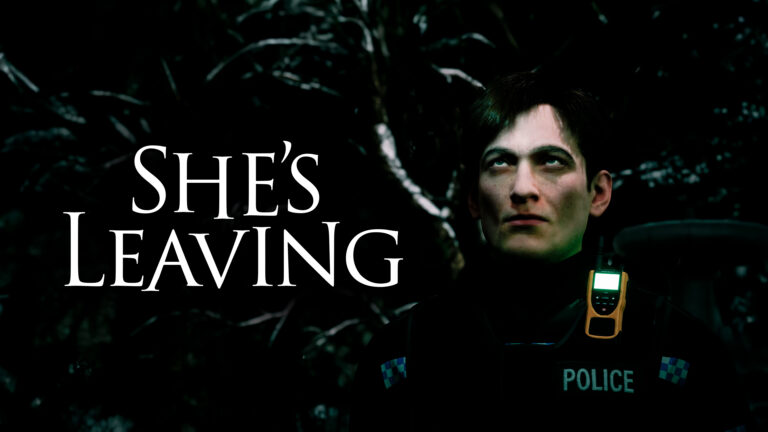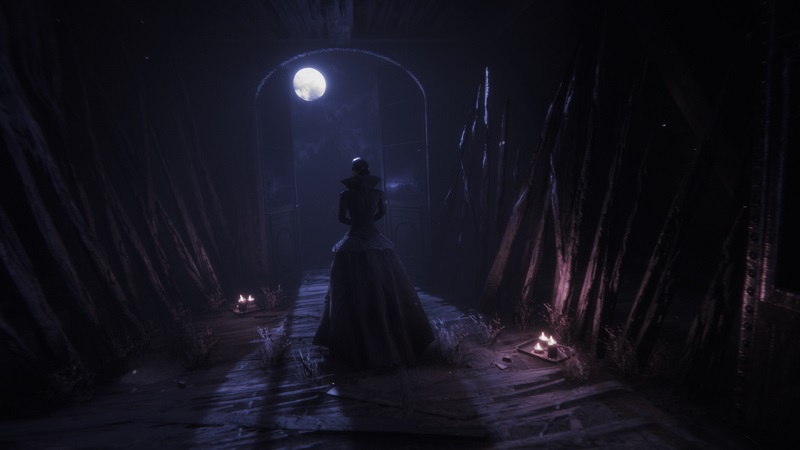
With the release date and gameplay trailer released for Wales Interactive’s Maid of Sker just yesterday, we’re now gearing up for the final release in just a few weeks. With the date approaching fast, I recently had a chance to sit down with the composer and sound director for the game, Gareth Lumb, to ask some questions about the inspirations for the game’s heavily musical story and themes, as well as the soundtrack and sound design.
As a fellow musician, this was a great opportunity to ask some questions about what is quickly shaping up to be one of my favorite horror games and horror game soundtracks of 2020, and I got some great answers from Gareth as follows:
_______________________________________________________________________________
ROH: Can you share a little bit of your background in video game work, like how long you’ve been working in the industry and what other projects you’ve worked on?
My background in the industry really centers around Wales Interactive. I’ve been with the studio as a freelancer since 2014 when I was studying for my master’s degree in creative sound production. I wasn’t sure what I wanted to do and I hadn’t really had plans to work in games but we took part in an internship scheme as part of the course and I came to WI. I was there for a couple of weeks and it really opened my eyes that this was something I could do. They must have liked the work I was doing because they took me on as the resident sound professional. I was hooked immediately, I have always been an avid gamer and game music has been hugely influential to me as a musician, so I think it was just a good match. I’ve been responsible for all sound and music on all WI’s first-party games ever since, so I’ve had the pleasure of working on Soul Axiom, Don’t Knock Twice, Time Carnage, and now Maid of Sker.
ROH: It’s not too often I see composers and musicians also double their duty as the sound director on a game as well. Can you explain how you got tasked with both duties on Maid of Sker?
Haha … yes if it makes a sound, it was me! It’s always been that way since I joined the studio. It’s a really lucky position to be in. I love having control over all elements of the sound and it’s a great experience to be able to work on such a diverse range of tasks; I get to write and record music, record and edit dialogue and work with the fantastic voice talent, I get to design all the sound effects, and do implementation of audio in conjunction with our coders. It is a lot of work though and a lot of responsibility when all audio-related bucks stop with me! I think it’s mainly just by virtue of the size of our team. Most of the team do more than one job, and I’m no exception. The scope and ambition of Maid of Sker has really pushed all of the team and that’s been hugely challenging but a lot of fun too.
ROH: On to Maid of Sker specifically, I love the very frequent female vocals that carry so many of the tracks featured in the game, and the vocalist Tia did a fantastic job on the performances. Was this always part of the plan of the music design from the beginning to include a female voice as one of the main musical components?
I can’t praise Tia highly enough! Her voice is really the defining element of the soundtrack. It wasn’t always the plan though. In the research and development phase I had written a fair bit of music (in a totally different style) but our studio co-founder and Game Director, David Banner, came up with the idea of using Welsh hymns to tie in with the folklore themes running through the game. I went away and listened to loads of Welsh music which was a nice way to connect with my musical heritage. I came back with the three hymns. It took a while to arrange them into minor keys and to give them a more chilling feel. We have never had a performer budget on previous projects but I had done a bit of work with Tia on some of my own music, I knew her voice would be a good match and also that she was a fluent Welsh speaker, so we decided to give it a go. Once we recorded Tia, we immediately knew we were about to produce something special for the fans. The only downside was that it rendered a lot of the music I’d already written irrelevant and out of step, so I went back to the drawing board and based the more incidental music around the mood set by the hymns.
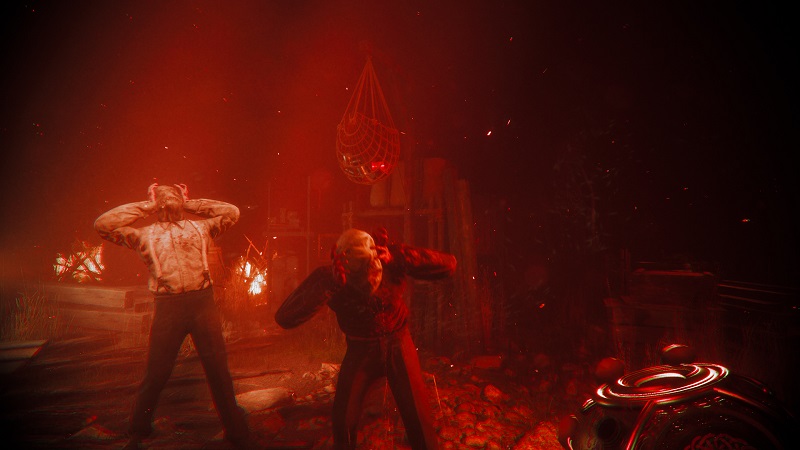
ROH: I also like the juxtaposition of the beautiful and haunting vocals mixed with many of the more shocking or unpleasant sounds from broken instruments or dissonant chords. Was there any inspiration for this idea to mix the two together so often?
I think that’s always been a central part of my musical philosophy — when something beautiful and melodic is contrasted against something harsh and discordant, for me that’s one of my favorite feelings. Also, this being a horror game, I wanted to set players on edge and that uncanny valley between beauty and ugliness is the perfect way to do so.
I wouldn’t say there was a particular inspiration, it was more that I’d just found a load of broken old instruments in my attic. In particular, a violin with one string and the most ragged bow you’ve ever seen! Plus, there was a broken zither with a load of the strings snapped. These instruments formed the basis of a horror sound rig that I built in my studio. I also used a branch from a monkey puzzle tree and a lot of my old broken cymbals (I’m a frustrated rock drummer) amongst other assorted junk. I tried to come up with as many interesting ways to make sound from this collection of objects and instruments, bowing the cymbals with the monkey puzzle branch and hitting the zither with mallets, that kind of thing. I had a lot of the basic ideas for tracks laid down as sketches with piano and string parts so I just recorded myself performing along to the tracks and that was how I started to flesh them out.
ROH: What other horror films or games inspired a lot of your work here on Maid of Sker? I heard a lot of Resident Evil 2/CODE Veronica influence on the track “Night Falls,” whether it was intentional or not, and I love it. I also felt what sounds a little like some of the Friday the 13th soundtracks in “Green Fingers” and I’m wondering if those things were of any influence or you had picked them up from elsewhere.
Growing up I played all the Resident Evil games as they came out so there’s no doubt that’s influenced my writing. Specifically, the save room themes. I got really excited when I realized that we were going to have “traditional” save rooms in Maid of Sker and that I would get to write a theme for this. The track “Sanctuary” is one of my favorites on the OST. I also love the music on SOMA and Dead Space, and although different thematically, I tried to take inspiration from them on building and releasing tension which is a key approach when writing for horror.
John Carpenter is a huge influence to me, his films, but more specifically his soundtracks. I also look to Brad Fiedel and his horror scoring. Sticking with TV and film, I should give mention to The Haunting of Hill House which I watched during development. That really influenced a lot of my sound design choices and probably some of the writing too.
ROH: When playing through the game, I also noticed a fair amount of music and sound being tied to certain in-game actions, like when enemies turn around quickly, there’s often a stinger or musical hit of some kind that really heightens the tension, and the music also dynamically changed in real-time as you move around and encounter different things. I’ve always wanted to ask how complex it gets when trying to program those kinds of dynamic changes in sound and music during gameplay.
I would call the music setup in Maid of Sker “pseudo-dynamic”. I try to keep the score fairly dynamic so that it mirrors what’s going on during gameplay. It’s so important for the music to respond sympathetically to gameplay cues.
It’s really just a matter of creating audio assets that are compatible, in the same key and tempo, so that they can transition in and out seamlessly. This is the first project where I’ve really been able to do this thanks to the use of FMOD, a proprietary audio middleware. It can respond to signals generated by gameplay such as entering a new area or the distance of the player from one of the NPCs. Using the middleware gives me a great deal of autonomy to tweak how music can react to these cues. Programming this logic does get complex when you have to account for all the possibilities and timings of different players and then the potential combinations of events that can happen. With that said, I’d like to take what I’ve done to an even higher level but what I found was the system isn’t as responsive or comprehensive as I’d like. It’s definitely something I’ll be delving deeper into for future projects.
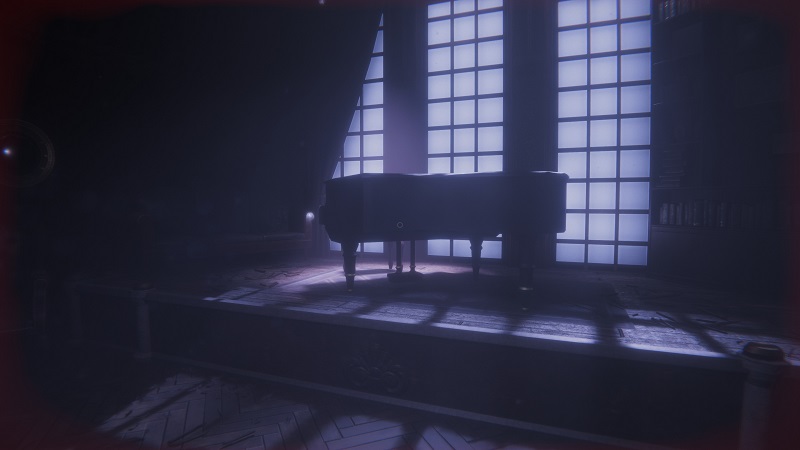
ROH: There’s several tracks that feature a music box sound to them, and a music box melody also plays from the in-game collectible dolls to help you find them. Was there a certain inspiration of where that focus on the music box sound came from?
The song played by the collectibles is “Hen Plant Bach” which is a song I sang in primary school. There’s a well-known correlation between children’s songs and horror, so this is the Welsh twist I put on it. Music boxes are creepy too, I think that might be something I picked up from Resident Evil.
ROH: The song “Suo Gan” was used beautifully in the game as the “counter song” of the story, and the rendition you hear near the end with the organ is top-notch. What was your thought process going in to bring modern arrangements to the ancient Welsh folk hymns featured here? Were these songs close to your heritage in growing up or did you discover them when researching for this project?
I found it quite daunting, to be honest. These songs are very special to me personally, I’ve grown up hearing them. Calon Lân was played at my grandfather’s funeral. They are pretty deeply ingrained in Welsh culture, especially Calon Lân and Ar Hyd Y Nos which are both Welsh rugby anthems so they are really well known. Because of all of this, it’s important to me that I do them justice.
The hymns serve very particular purposes to the narrative of the game so a lot of thought went into making them fit for purpose in that respect. This is quite an uncommon trait in video games but I don’t want to give away too much as the players should discover this for themselves.
ROH: The story of the game itself also centers around music on many levels and in many small details. Were you involved in fleshing out some of those more musical parts of the story, or was that mostly handled by the writers themselves?
It was really exceptional to write music that keyed off the narrative so directly and vice versa. Music is usually more of a narrative support than an actual plot device so this was a really fun element of the project. The narrative connections to the music were largely done by the writers and our game directors. I consulted with them a little about what songs we had to play with and where and how they could be used. Once we had the script and I’d edited all the dialogue, my job was fleshing out. So yes, I had to go over the gameplay elements that contribute to the narrative and tie together as much of the story as possible through the audio diaries and the incidental appearances of music throughout the game.
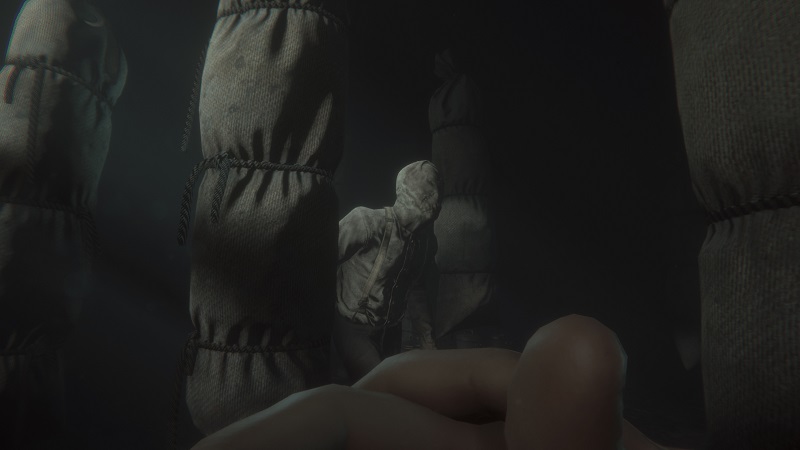
ROH: Many of the puzzles in the game also revolve around music. Were you directly involved with the creation of all these? They were generally all very satisfying and unique from what I encounter in most horror game puzzles.
Yes. That was a lot of fun. In one of the musical puzzles you have to match a series of tones to some bells and ring them in the correct order. I initially made that really difficult with intervals I knew to be harder to tell apart. Nobody in the office could do the puzzle! So, I made it a little easier, and then when the testers played it, they couldn’t do it either. I had to make it so non-musicians could identify the tonal differences, making a clear octave gap between bells and people still say it’s difficult! Anyone who plays an instrument would find it really easy now, I imagine.
ROH: Thanks for your time and I can’t wait until the public can experience this unique game you guys have put together. Any final words for anyone looking forward to the game?
You’re welcome! Thanks for having me. I’d like to invite your readers to Wishlist the game on Steam ahead of the launch on July 28. The game will be available on PC with a digital and physical launch on PS4 and Xbox One.
Additionally, I would like to exclusively reveal that we will be offering the full digital OST for free to anyone who pre-purchases the game on Steam from July 21.
I hope you have as much fun playing it as I had making it.
Diolch yn fawr!
Stay tuned for a full review of Maid of Sker as we get closer to the release date and check out the social media channels for Wales Interactive and Gareth for further updates on the game and soundtrack release as well!

